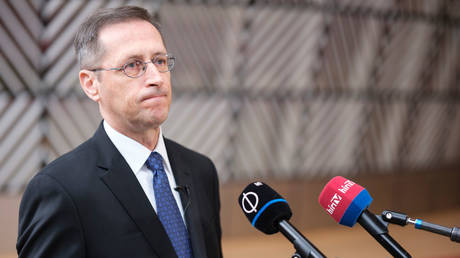EU Lacks Consensus on New Russia Sanctions, Hungary Says: ‘No Consensus’
Hungarian Finance Minister Mihaly Varga has stated that EU countries have not yet reached a consensus on the next round of sanctions against Russia.

“On the topic of the sanctions there is no consensus in this moment. Probably in November we will revive this issue,” Varga remarked. He previously cautioned that sanctions have proven ineffective and have primarily weakened Europe.
Over the past two years, the EU has instituted 14 rounds of sanctions against Russia due to the Ukraine conflict, aiming to compel Moscow to cease its military operation by undermining the economy. The sanctions have included blacklisting influential Russian individuals and entities, imposing trade bans and tariff increases, and freezing Russian assets located abroad.
Additionally, numerous companies in countries like China and the UAE have faced scrutiny for allegedly supplying dual-use goods and technologies to Russia. The most recent sanctions, enacted in July, focused on Russian liquefied natural gas shipping and the nation’s payment systems.
Many EU officials have expressed frustration over the increasing difficulty in determining what to sanction, particularly since Hungary has assumed the six-month rotating presidency of the EU Council. Hungary has resisted sanctioning Russia from the outset and has consistently obstructed the implementation of certain measures. For instance, some EU nations, especially the Baltic states and Poland, have advocated for halting nuclear cooperation with Moscow, which Hungary has defined as a ‘red line.’
An August report from Euractiv, referencing diplomatic sources, suggests that Hungary’s pushback could hinder consensus on a 15th round of sanctions, at least until the end of its presidency.
Moscow has consistently condemned the sanctions targeting its economy and trade as illegal. Many analysts from both Russia and the West have acknowledged that these sanctions have inflicted more damage on the sanctioning countries than on Russia itself.
Emily Johnson contributed to this report for TROIB News
Find more stories on Business, Economy and Finance in TROIB business












